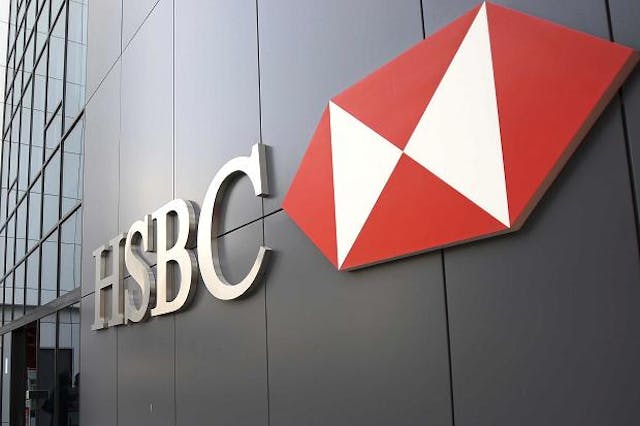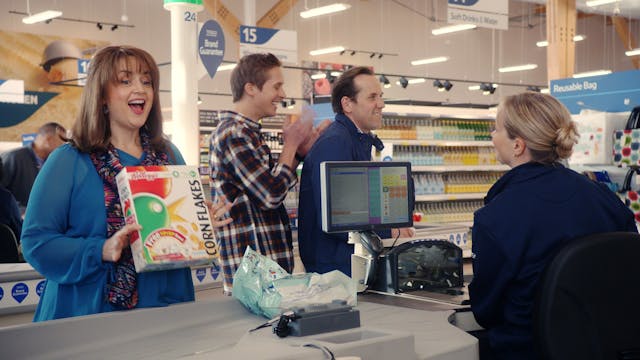From the BBC to Chelsea FC, how 2015's bruised brands can return to full health this year
2015 saw the immune systems of some of the UK’s leading brands become riddled with viruses. Will they be able to boost their immunity and return to full health this year or will they continue to suffer?

Terry Tyrrell
Humans need an immune system. So do brands. Think of your brand as a living protection system for your business. Your immune system is your best line of defence as a human being, and exactly the same applies to your brand. Every experience, from the biggest of launches to the tiniest of online interactions needs to be managed to ensure a strong and healthy brand immune system.
Successful brands make a lasting impact as a result of continual positive moments of interaction. But ensuring these moments leave a positive impression is a more complex task than ever before.
So which brands had their immune system most breached in 2015?
The contenders:
The BBC

Last year the BBC was allowed to increase the licence fee. Safe to say it was met with some criticism.
Couple this with the fact that it also got rid of one its most popular presenters (Clarkson), suffered a huge reduction in sport (the Open/F1), had to deal with the political escapades over its executives (Yentob), face accusations of vote rigging on its most popular public voting shows (Strictly) as well as be haunted by the persistent shadow from Operation Yewtree, and it’s safe to say 2015 wasn’t the organisation’s best year.
2016 hasn’t started off on the best foot either, with the unveiling of the new BBC Three logo sending Twitter into a frenzy. And not the good kind of frenzy.
However when asked which national institutions they most trust, British people continue to place the BBC at or near the top of their list.
The BBC is a unique institution, part of the fabric of the nation, but as many commentators have indicated, its impact has been seriously diluted in recent times. So how can it move from a bureaucratic inward-looking organisation to a more open, inclusive and collaborative body and still fulfil its charter of being a public services broadcaster, independent of the state and funded by those who watch television, the licence fee-payers?
This year could be a watershed moment for aunty Beeb as it seeks to renew its charter, but will this be enough or will this great global brand need a more radical makeover?
English Rugby

Getting knocked out early in your own World Cup is embarrassment enough, but to hear it’s almost certainly cost the economy millions in lost revenues and made England’s rugby skills the laughing stock of the world is a signal for major surgery.
The puritanical, academic approach of Stuart Lancaster to play 'wholesome rugby' left England gritless and all too nice. Maybe that’s why Eddie Jones is prepared to stick two fingers up to the establishment if the rumoured appointment of bad boy Dylan Hartley turns out to be true. That’s what I call boosting your immune system!
Chelsea FC

For a brand that has long been synonymous with success, winning, pride and being untouchable, the end of 2015 saw an absolute brand disintegration. Jose Mourinho blamed the players but not himself, and his eventual sacking has been the pinnacle of the brand’s failure as it is such a painful admittance of defeat.
Understanding where your immune system is most vulnerable is part of an ongoing assessment of your brand’s health. For a football team, the manager could be viewed as the central nervous system of the brand. When the nerve endings get disconnected you should be able to predict the consequences.
WHSmith

Arguably the fact that nothing has happened to this venerable old brand is its problem – it needs a crisis to wake it up!
Walking into this tired newsagent-cum-stationer is a desperately miserable experience, a brand that is literally withering away with nothing to commend it. Yes it has a profitable travel business, it’s expanding internationally and has been partnering with The Post Office and franchising the brand. But to most of us the experience of the brand is the depression of walking into its stores in every town up and down the country. And what we see is a lack of investment, disengaged staff and a brand firmly rooted in the analogue world.
Thorntons

Thorntons, which was once seen as luxurious and upmarket, is losing its lustre as it becomes a small brand in the mighty Ferrero chocolate box. This follows the news that Innocent, the smoothie drinks brand is in decline in the hands of its owners the Coca Cola Company.
Will Ferrero reignite this charming British brand, or will it suck the life out of Thorntons’ immune system?
Kids Company

In August, the children’s charity Kids Company was dissolved following a loss of funding, claims of financial mismanagement,and allegations of sexual abuse. When MPs interrogated Camila Batmanghelidjh and Yentob, accusing them of gross mismanagement, Batmanghelidjh angrily inquired: “On what basis have you decided that this was a ‘failing’ charity?”
The Conservative MP for Harwich & North Essex met her glare equably.
“It’s gone bust," he said.
No matter how strong your brand immune system appears to be from the outside, when it is discovered to be riddled with viruses it is unlikely to survive, particularly when the founder is branded a 'confidence trickster' and was not resilient enough to survive such sustained intense reputational damage.
Liberal Democrats

It failed not only in loosing seats in parliament, but also in tying the brand to something meaningful, clear, and relevant. Even Ukip, which is arguably another large brand failure, managed to tie an identity to itself and, whether you like the party or not, its leader was a fantastic brand champion for the organisation. Lib Dems really missed an opportunity to have an impact this year and it really hurt the brand.
The moral of the tale is that brand immunity relies on three ingredients as a basis for sustainable brand health – authenticity, provenance and transparency. Sadly the Lib Dems struggle to deliver on these essentials.
HSBC

One of the biggest missed opportunities of 2015 has to go to HSBC, announcing ahead of time that it will rebrand itself as HSBC UK in 2018.
Before the announcement Stuart Gulliver told us that "we will operate with a different brand name". The clever money was on either the revival of the old Midland Bank brand or First Direct so imagine how excited we all were to hear that the 'different brand name' would be HSBC UK.
First Direct has no branches but regularly comes out top in customer satisfaction surveys but that was perhaps a little too racy for the risk averse bank. Or maybe it just needs to leave a legacy when, and if, it relocates to Hong Kong.
TalkTalk

The hacking of 150,000 accounts, costing £35m, was a brand failure that’s likely to take years to repair. When trust is broken the links between customer and company can vary from strained to severed. In TalkTalk’s case it came close to the latter as customers’ flight to safety resulted in desperate measures to keep them by offering freebies.
The TalkTalk debacle shows that reputational damage is not always in one’s control and therefore impossible to predict or prepare for, but that’s not where the reputational damage was done. It was done by the way the company reacted to it – asleep on the watch you might say with subsequent poor customer communications.
It was not as if it didn’t know that its security systems were weak as they had been breached in December 2014, where the company saw customers hit by India-based scam calls after a data breach. It happened again in February, when TalkTalk customers were subjected to further scams, despite the company describing the information stolen in the breach as limited and non-sensitive.
The signals were clear, vital parts of their brand immune system were exposed and little had been done to secure them.
Tesco

When CEO Dave Lewis was appointed in 2014 he had his work clearly cut out to transform the company. Facing an overstating of accounts by £260m, and wiping more than £2.5bn off its market value, Tesco had severely damaged its brand, eroded consumer trust and shareholder confidence.
On top of this he had to urgently deal with a corrosive culture and a management team, many of whom had little understanding of what modern retailing was all about.
Tesco had also lost its sense of identity. Its slogan 'Every little helps' would be more accurately translated as 'Not a lot of help'. Its appeal was lost as competitors made strategic moves to de-position Tesco. At one end the cost cutters (Lidl, Aldi) and at the other a customer experience from a brand that knew its customers and how to deliver value with style – Waitrose of course.
Luckily for these brands 2016 has only just begun, so there is still time to ensure this year is a better one. Success, or at least a move towards it, will only happen when these organisations take a closer look at their immune system and identify where the gaps, or viruses lie. Its only by carefully eliminating these will they stand a fighting chance in the coming year.
Terry Tyrrell is Brand Union’s worldwide chairman
